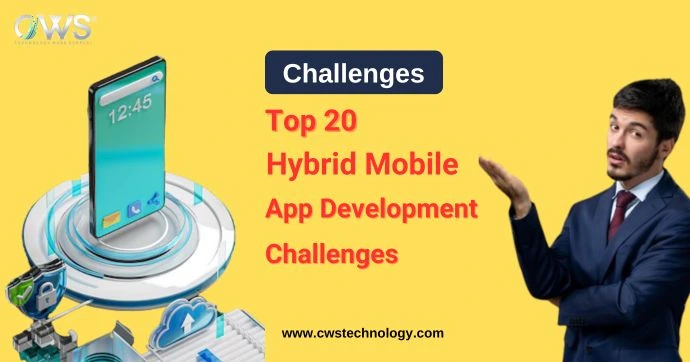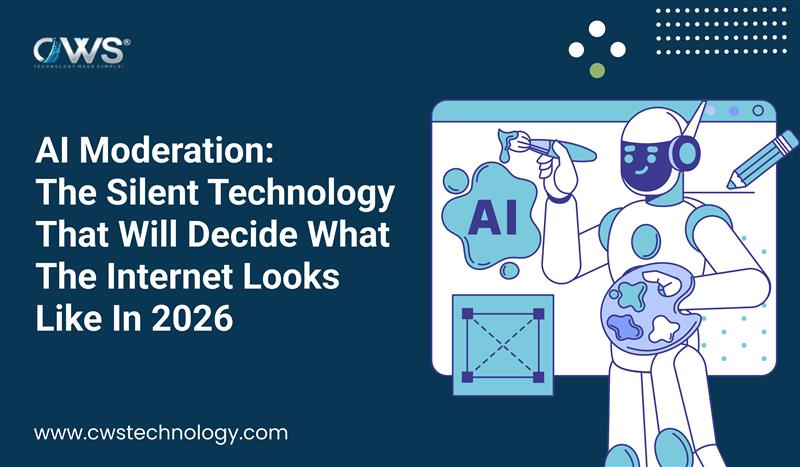The development of hybrid mobile applications has become increasingly popular as businesses seek efficient ways to reach users across multiple platforms. Hybrid apps merge the advantages of both native and web technologies, providing a cohesive solution. However, developing these apps presents its own unique set of challenges. In this blog, we will explore 20 common obstacles developers encounter and provide practical solutions to address them.
Top 20 Hybrid Mobile App Development Challenges
1. Performance Issues
Challenge:
Hybrid apps often face performance problems, especially when dealing with animations, complex visuals, or heavy data processing. This occurs because hybrid apps run within a web view, which can’t match the speed of native code.
Solution:
Optimize app performance by reducing the use of heavy resources, leveraging hardware acceleration, and writing clean, efficient code. Using frameworks like React Native or Flutter can also help improve performance significantly.
2. Platform Compatibility
Challenge:
Ensuring the app looks and functions the same across different operating systems like iOS and Android can be tricky due to varying platform standards.
Solution:
Thoroughly test your app on both platforms. Use platform-agnostic UI components or frameworks like Ionic and Xamarin to maintain consistency.
3. User Experience (UX)
Challenge:
Hybrid apps sometimes fail to deliver a seamless user experience because they aim to cater to multiple platforms simultaneously.
Solution:
Adopt a user-centric design approach. Focus on intuitive navigation, fast load times, and smooth interactions to enhance UX.
4. Device Fragmentation
Challenge:
The vast range of device sizes, screen resolutions, and hardware configurations can make development challenging.
Solution:
Use responsive design principles and frameworks like Bootstrap. Regularly test your app on devices with different screen sizes and resolutions.
5. Limited Access to Native Features
Challenge:
Hybrid apps may have restricted access to some native features of a device, such as GPS, camera, or Bluetooth.
Solution:
Use plugins like Apache Cordova or Capacitor to bridge the gap between web code and native functionalities. For complex requirements, consider incorporating native code where necessary.
6. Debugging Difficulties
Challenge:
Debugging hybrid apps can be more challenging than native apps because of the extra webview layer involved.
Solution:
Utilize debugging tools such as Chrome Developer Tools for webview and platform-specific tools like Xcode or Android Studio to identify and fix issues.
7. Slow Loading Time
Challenge:
Users expect apps to load instantly. Hybrid apps sometimes struggle with this due to their reliance on web technologies.
Solution:
Minimize the use of large media files, optimize APIs, and implement lazy loading to speed up app initialization.
8. Security Vulnerabilities
Challenge:
Hybrid apps are often more susceptible to security risks such as cross-site scripting (XSS) and SQL injection.
Solution:
Use secure coding practices and tools like HTTPS, Content Security Policy (CSP), and security plugins. Regularly update the app to patch vulnerabilities.
9. Limited Offline Support
Challenge:
Hybrid apps may not function well without an internet connection, leading to poor user experience in offline scenarios.
Solution:
Implement local storage solutions like IndexedDB or SQLite. Design the app to work in offline mode with data synchronization features.
10. Framework Dependency
Challenge:
Hybrid app development frameworks may become outdated or lose community support, creating long-term maintenance issues.
Solution:
Choose a widely adopted framework with active community support, such as Flutter, React Native, or Ionic.
11. High Battery Consumption
Challenge:
Hybrid apps can consume more battery power due to inefficient resource usage or poor optimization.
Solution:
Monitor and optimize the app’s background activities, minimize API calls, and use lightweight libraries to reduce battery drain.
12. Third-Party Plugin Limitations
Challenge:
Relying on third-party plugins for native functionality can lead to issues with compatibility, performance, or bugs.
Solution:
Assess the quality and compatibility of plugins before integrating them. Consider building custom plugins if necessary.
13. App Store Approval Delays
Challenge:
Hybrid apps may face longer approval times from app stores due to stricter review processes.
Solution:
Adhere to app store guidelines and thoroughly test your app for bugs or policy violations before submission.
14. Poor Network Performance
Challenge:
Apps relying heavily on server-side processing can face performance issues due to slow or unstable network connections.
Solution:
Optimize your APIs for faster responses, use caching mechanisms, and compress data before transmission to improve performance.
15. Integration Challenges
Challenge:
Integrating third-party tools or APIs can be more complicated in hybrid apps due to compatibility issues.
Solution:
Thoroughly test third-party integrations during the development phase. Use middleware or APIs that are compatible with hybrid app frameworks.
16. Data Synchronization Issues
Challenge:
Ensuring seamless data synchronization across devices and platforms can be tricky.
Solution:
Use reliable backend services like Firebase or AWS Amplify to manage data synchronization efficiently.
17. Scalability Concerns
Challenge:
Hybrid apps might struggle to handle an increasing number of users or complex features.
Solution:
Plan your app architecture for scalability. Use scalable backend services and optimize database queries.
18. User Retention
Challenge:
Delivering a subpar experience can lead to low user retention rates.
Solution:
Focus on delivering value to users through regular updates, engaging features, and consistent performance improvements.
19. Cross-Browser Compatibility
Challenge:
Hybrid apps need to function seamlessly across multiple browsers, which can introduce inconsistencies.
Solution:
Test your app on all major browsers and use polyfills or frameworks that ensure compatibility.
20. Updating and Maintenance
Challenge:
Keeping the app up to date with the latest OS versions, libraries, and user expectations can be challenging.
Solution:
Establish a regular maintenance schedule, monitor framework updates, and gather user feedback to keep your app relevant.
Conclusion
Hybrid mobile applications offer the advantage of reaching a wider audience with a single codebase. However, they come with challenges that require careful planning, testing, and optimization. By addressing the issues mentioned above, developers can create robust, high-performance apps that delight users and meet business goals.
Must Know-: Top Differences Web Development and Mobile App Development








